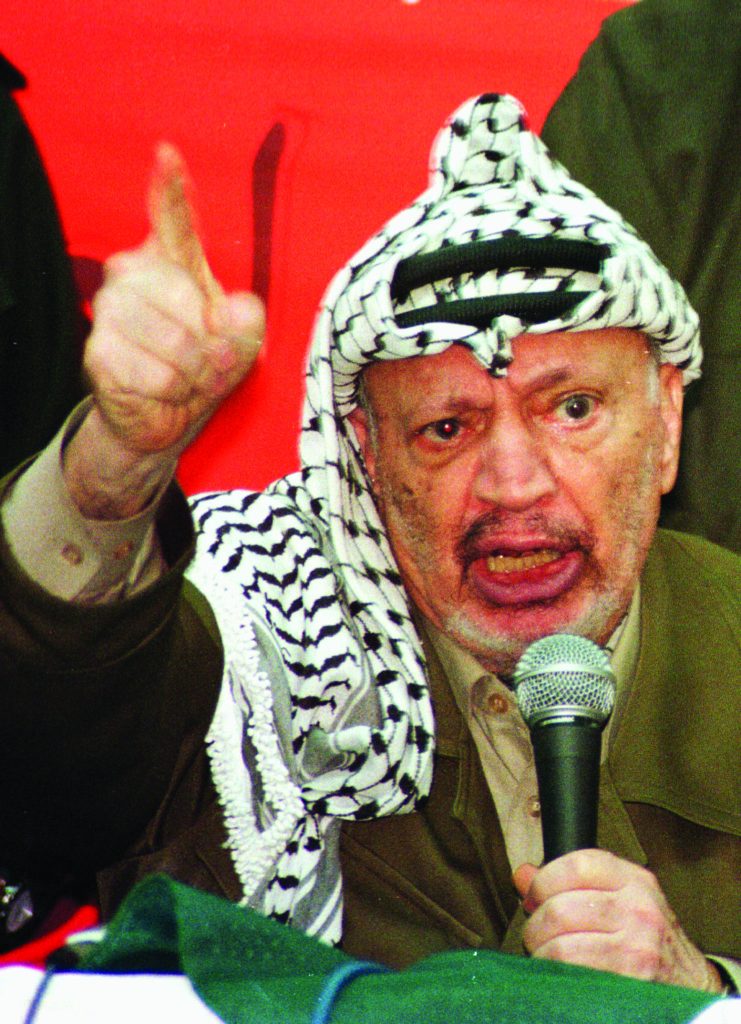Australia/Israel Review
Oslo’s failure: A Palestinian perspective
Sep 28, 2023 | Mohammed Dajani

The 1991 Madrid Peace Conference brought a glimmer of hope that soon faded away. But that hope was revived in September 1993 when the Declaration of Principles was signed with a handshake between two historic enemies – PLO Chairman Yasser Arafat and Israeli Prime Minister Yitzhak Rabin. In 1994, the peacemakers were awarded the Nobel Peace Prize in recognition of the weight of this moment.
I remember vividly the first time I heard the word Oslo in connection with the Palestinian-Israeli conflict. I was teaching at the Applied Science University in Amman, Jordan, when the news of the Oslo Agreement became public. Among Palestinians, the news was received with mixed feelings. Though it squashed their dream of liberating Palestine from the Jordan River to the Mediterranean Sea, it was a dream come true that Palestinians would eventually have a state called Palestine.
The September 1993 Declaration of Principles and the agreements and protocols derived therefrom – namely, the Oslo Accords – ushered in a historical peace process that the 1978 Egyptian-Israeli peace agreement had started. It showed that people, governments, and the international community desired viable peace.
And indeed, the Oslo Accords accomplished much. They opened the door for diplomacy and dialogue. In her book The Vocabulary of Peace (1995), Shulamith Hareven maintains that the Oslo Accords brought an essential change: “From now on, it is not automatically Jew against Arab and Arab against Jew; it is the Jews and Arabs who support peace, and Jews and Arabs both who oppose it…”
The Oslo Accords brought another essential change: from now on, it is not Palestinians against Israelis and Israelis against Palestinians, but it is the maximalist Palestinians and Israelis who believe in one state from the river to sea excluding the other, and the moderate Israelis and Palestinians, who support sharing the land in a two-state solution or a confederacy.
Yet from its early days, the Oslo peace process lurched from one crisis to another, with no light at the end of the tunnel. Thus, life became a mixture of desperation and hope. When waves of violence and terrorism rose, people became distraught with despair; when they subsided, they became hopeful.
Palestinian extremists immediately began waging war against the Oslo Accords to derail the peace train. The agreement stipulated to start with Palestinian self-governance in Jericho and the Gaza Strip. In response, extremists waged a nasty campaign saying, “Jericho first and Last.” The momentum of the Oslo peace process managed to overcome the scepticism that developed from this campaign. The return of PLO Chairman Yasser Arafat to Gaza and his election in 1996 as PA president strengthened the peace process.

“Arafat came to feel that the Oslo Accords failed to fulfill his political ambitions of becoming the Saladin of this era. Thus, he shifted back to being a disrupter of peace…” (Image: AAP)
Nevertheless, the momentum of Oslo led only to limited results. In evaluating why this was the case, three components help explain its trajectory: the leaders, the people, and the hidden powers within the system. Israeli and Palestinian leaders, Israeli Prime Minister Yitzhak Rabin and PLO Chairman Yasser Arafat, both came from a military background, and yet they ignited the Oslo peace process. Regrettably, the assassination of Rabin by a Jewish fanatic in 1995 dealt a serious blow to the Oslo peace process and erased from the political scene a solid pillar of the Oslo Accords and a staunch supporter of peace, leaving the other partner alone to become increasingly divorced from the process.
For his part, Yasser Arafat had adopted an odd Chinese-style military suit for the four decades prior to Oslo. He did not shelve this suit after Oslo, and could not shift, as Nelson Mandela did, from his role as a freedom fighter to becoming a suave diplomat.
Under pressure from Palestinian extremists, Arafat came to feel that the Oslo Accords failed to fulfil his political ambitions of becoming the Saladin of this era. Thus, he shifted back to being a disrupter of peace rather than a peacemaker. In this way, the Oslo Accords lost both of their chief architects, weakening their ability to translate vision into reality.
On the popular level, both the Palestinians and the Israelis were seated in the audience watching the play. Both wanted peace but could not play an active role in achieving it. With the eruption of violence by extremists, fear filled the air and trust was its first victim, paralysing what could have been a popular movement to realise the goals of the accords.
The Hamas suicide bombing campaign against Israeli civilians severely undermined the Israeli peace camp, shifting some moderate Israeli voters to vote for the extremist parties. Right-wing extremist Israeli parties took control of the Israeli government and were determined to bring to a halt the Oslo peace process train. On the Palestinian side, the status quo seemed to favour that those in power remain in power, disenfranchising those who sought a brighter future.
There are still signs that the Oslo Accords have left an impact. In August 2020, the Oslo Accords eased the way for the signing of the Abraham Accords, bringing to the peace process four new Arab states in addition to Egypt, Jordan, and the Palestinian Authority.
And as we look back at the legacy of the accords, it is not the Oslo Accords that failed us, but Israelis and Palestinians who failed Oslo.
How can we advance peace when none of the Arab universities has a centre for teaching the thought, practice, and study of peace? When most of the publications focus on conflict rather than peacebuilding? When the educational curriculum teaches hatred, enmity, and death rather than celebrating life, moderation, and reconciliation? When terrorists and extremists are celebrated and peacemakers and moderates are labelled traitors? We need to change our mindset and culture to achieve peace.
The Oslo Accords set the foundations for peace, but it is up to both peoples to achieve it. The way ahead is diplomatic dialogue, normalisation, and non-violence to end the occupation and achieve justice. The Oslo Accords brought a fresh peace initiative full of hope to end the protracted conflict, but unfortunately, extremists derailed the train. Now, it is up to the moderates to get the train back on track.
There are the good and bad, peace lovers and warmongers, the extremists and moderates on both sides of the wall. When moderates unite, flowers of peace will blossom.
Mohammed S. Dajani Daoudi is the former Weston Fellow at the Washington Institute for Near East Policy and is Director of the Wasatia Academic Institute in Jerusalem. © Washington Institute for Near East Policy (washingtoninstitute.org), reprinted by permission, all rights reserved.
Tags: Israel, Palestinians






